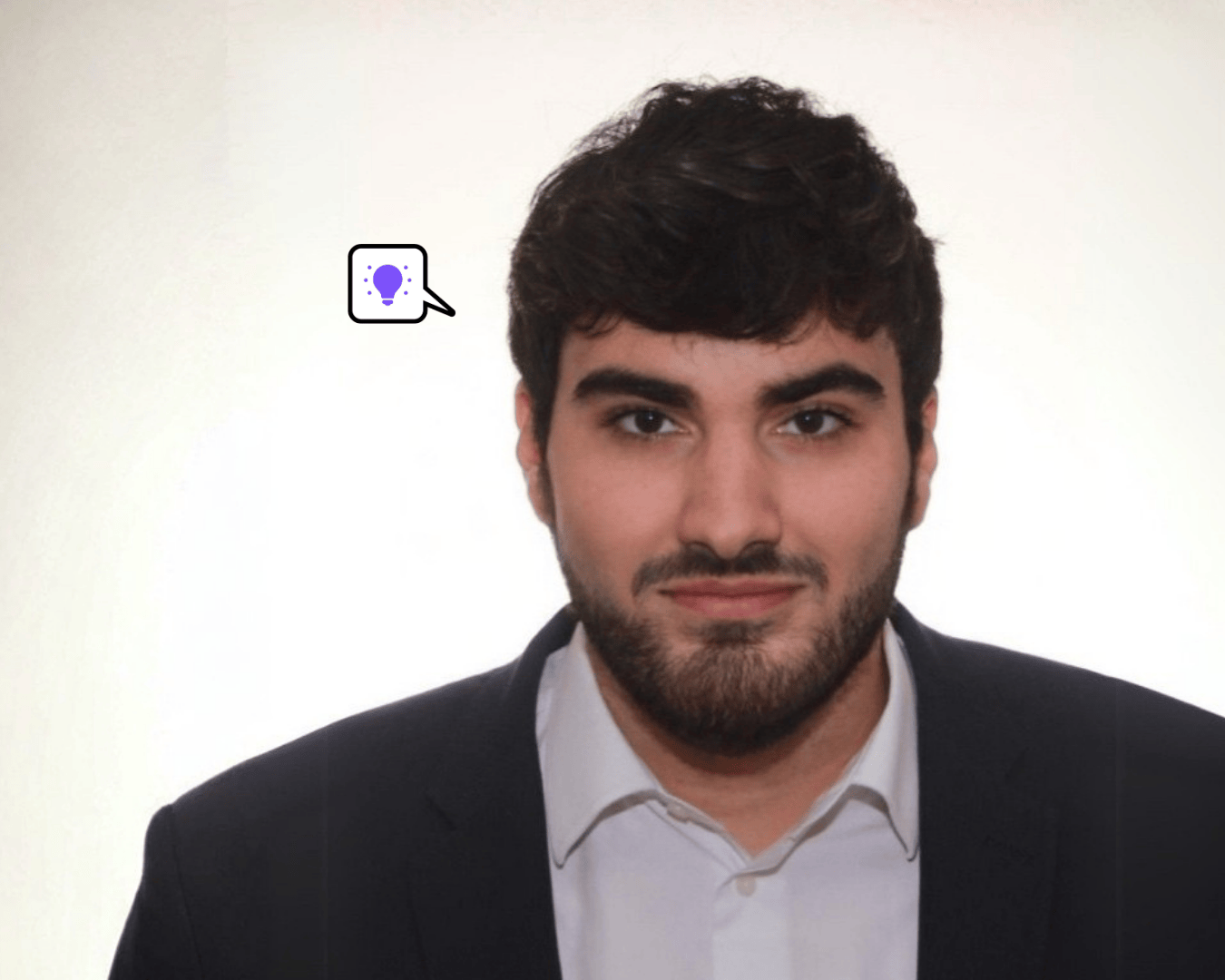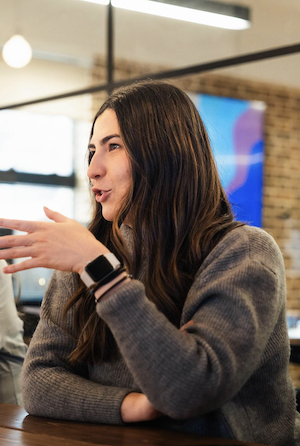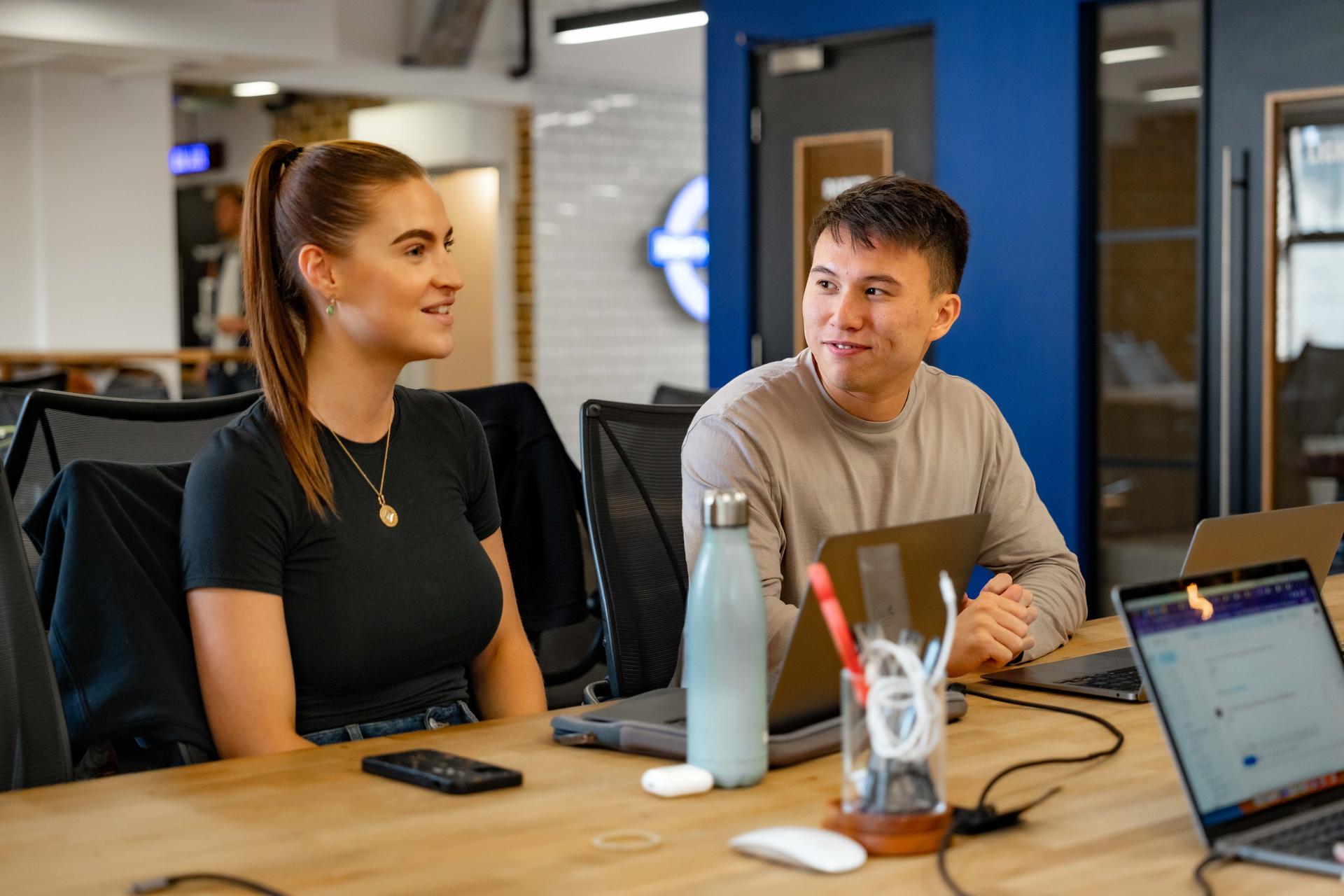For this Wiser Expert interview, we caught up with Kim Antoljak, Head of Talent at Aqua Resturant Group, to hear how she’s building people-first hiring strategies across continents, why hospitality can’t afford to treat people as disposable, and the small, consistent actions that build long-term loyalty.
From service to strategy
Kim’s hospitality journey started early. Raised in Vienna, she spent her teens helping in her family’s restaurant, sparking a love for service that’s stayed with her ever since.
She went on to build a career in five-star hospitality across Europe, working in operations, guest relations, and front-of-house roles for global hotel brands like Marriott, including a transfer to London just before the pandemic hit. When COVID paused the industry, Kim used the time to rethink her career and step into recruitment, bringing her operational experience and people instincts into the talent space.
Since joining Aqua Restaurant Group, she’s led talent strategy across the UK while supporting new openings in Hong Kong, Dubai and the US. And she’s done it from the ground up: rebuilding systems, designing processes, and creating candidate experiences that reflect the warmth and detail Aqua brings to its restaurants.
“We started from zero, no ATS, no policies, no talent pipeline and now we have a people function that’s structured, thoughtful and scalable.”
Hiring for culture and capability
For Kim, hiring for culture doesn’t mean finding people who all look or act the same. It means aligning on values and bringing in people who care about the details, the craft, and the experience of others.
Aqua’s portfolio includes destination dining venues across four global cities. While service expectations are high, that doesn’t mean talent needs to come from traditional hospitality pathways. In fact, Kim’s seen a growing wave of career switchers bringing valuable skills from retail, wellness, and other customer-facing sectors.
“We look for people with genuine passion. People who align with our service style and care about the details, but who also bring something fresh, whether that’s language skills, culinary insight, or a new perspective.”
There’s also been an uptick in candidates over 50, looking for people-centric work that offers more human interaction. This multi-generational mix, Kim says, creates a better environment for learning, especially for early-career hires who benefit from that blend of lived experience and new ideas.
It’s a hiring approach that values potential, not just polish and it’s what allows Aqua to build high-performing, diverse teams that reflect their global clientele.
Building loyalty in a high-churn industry
Hospitality has always had high churn, especially in the UK, where it's not widely seen as a long-term career path. But Kim believes the rules of retention are changing.
People want more than pay. They want growth, clarity, and to feel like their work has purpose. In response, Kim’s team has doubled down on building a meaningful employee experience from day one and it starts with how people are treated before they’re even hired.
“People stay when they feel valued. Culture, leadership and appreciation matter just as much as compensation — if not more.”
She led the implementation of a global ATS tailored to candidate needs, from mobile-friendly flows to clear, consistent communication. Whether or not someone gets the job, the goal is to make them feel respected, informed, and excited to apply again in future.
Once in role, every new starter goes through a welcoming and interactive onboarding, supported by buddy systems, structured touchpoints, and L&D partnerships that continue beyond the first few weeks.
“People decide within three weeks if they’ll stay long-term. So everything we do in that window matters.”
Her team also focuses on career mobility, not just vertically, but geographically. Employees have the opportunity to move between cities or venues, which adds another layer of progression and connection that’s rare in the sector.
Creating a Global EVP that flexes by market
With restaurants across four continents, Aqua’s talent strategy can’t be one-size-fits-all. The EVP (Employee Value Proposition) is built around shared values, authenticity, attentiveness, and quality. But how that shows up varies depending on the market.
In London, candidates are career-driven and fast-paced, so clear pathways and learning opportunities take priority. In Hong Kong, stability and brand reputation are more important. In the US, energy and impact matter most, especially when launching bold new venues like the 450-seat flagship in Madison Square.
“Our EVP is consistent, but not copy-paste. Local teams shape the story — we just give them the tools and support to tell it in their own way.”
To keep everyone aligned, Kim runs a global content calendar and supports each region’s HR lead with campaigns, templates, and activation ideas, from events to early-career outreach. It's collaborative, not prescriptive — a model that recognises local expertise while maintaining brand integrity.
Creating first impressions that last
Standing out means more than offering a great salary or a famous name. Kim believes it’s about the experience and that starts long before day one.
She emphasises the importance of the smaller details: from writing transparent job ads (with salary ranges included) to prepping candidates with tailored interview packs that include restaurant info, team size, and what to expect. AI supports the process behind the scenes, helping summarise CVs or schedule interviews, but the human touch is what candidates remember.
“We don’t want people to feel like a number. We want them to feel like they belong before they’ve even started.”
Once hired, every interaction is crafted to reflect Aqua’s guest-first mindset: warm, informed, and always looking for ways to add value. It's a candidate experience designed to mirror what Aqua delivers to customers — not just polished, but personal.
Why AI can’t replace people in hospitality hiring
AI is starting to play a helpful role in Aqua’s recruitment — especially when it comes to speeding up admin. For example, not all hospitality candidates have polished CVs, so AI helps surface relevant info without relying on formatting. It’s also improved communication — with interview reminders, scheduling links, and even preparation materials delivered automatically.
But Kim’s stance is clear: it’s a tool, not a solution.
“Hospitality is about people. AI can help us move faster, but it’ll never replace emotional intelligence, that’s what tells you who will really thrive in a team.”
For her, tech should make space for better conversations, not replace them. That’s the sweet spot where efficiency meets empathy and where hiring gets more human, not less.
The interview question every candidate should ask
Too often, Kim sees candidates come in with rehearsed talking points, focused on delivering what they think the interviewer wants to hear. She gets it — interviews are nerve-wracking — but encourages people to approach them more like conversations.
“When someone asks, ‘What does success in this role look like after a year?’ — you know they’re thinking long-term. That always leaves an impression.”
She also wishes more candidates would lean into authenticity — not just presenting a polished version of themselves, but showing curiosity and openness about the company, the team, and how they can grow.
The career advice that stuck
Early in her career, Kim tried to give 100% to everything and quickly learned that wasn’t sustainable. One piece of advice from a former manager has stayed with her ever since:
“Learn to manage your energy, not just your time.”
At the time, she was still finding her voice, navigating a new city, and constantly trying to prove herself. That advice helped her shift from reacting to everything to choosing where to show up with purpose.
Now, leading multiple regions and priorities, it’s a principle she leans on daily and one she shares with her team. Energy is finite, she says. Focus it where it counts.




